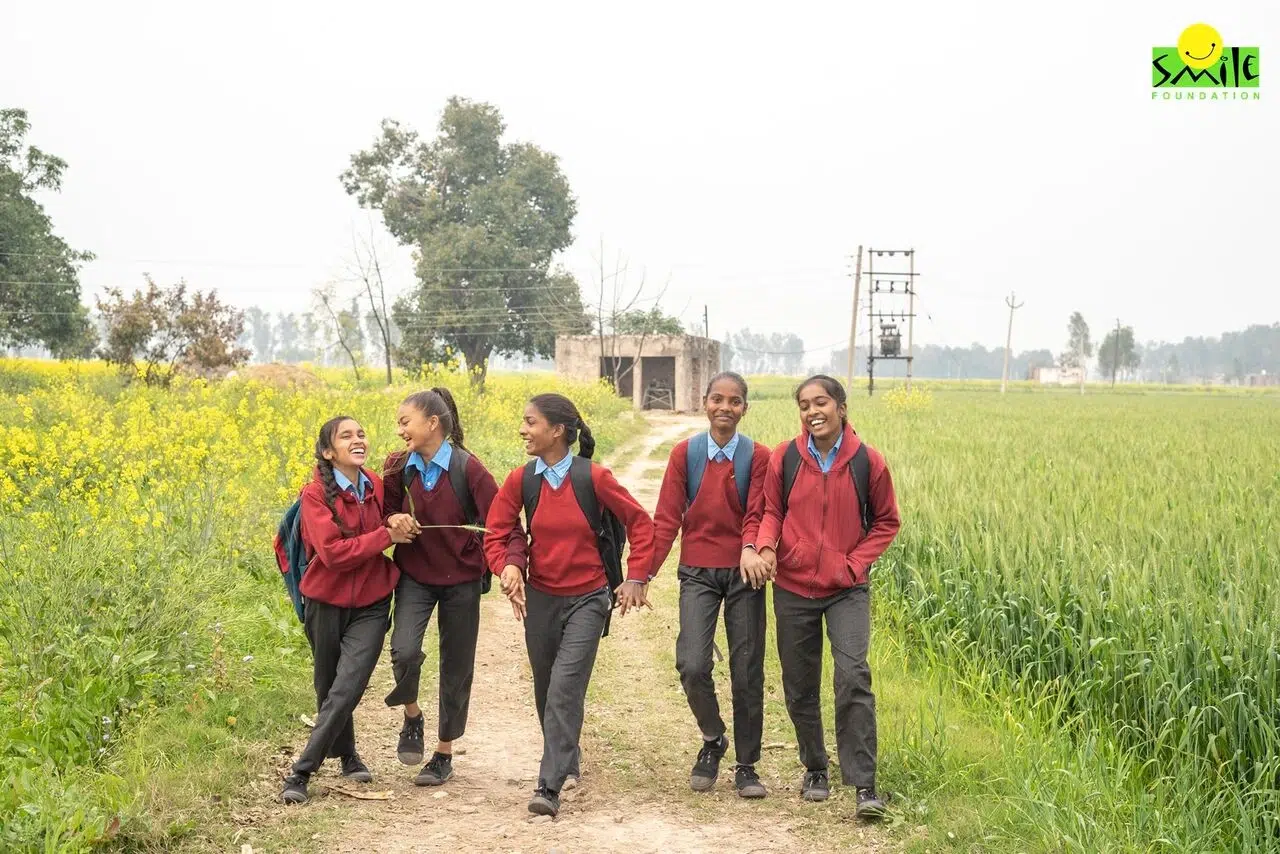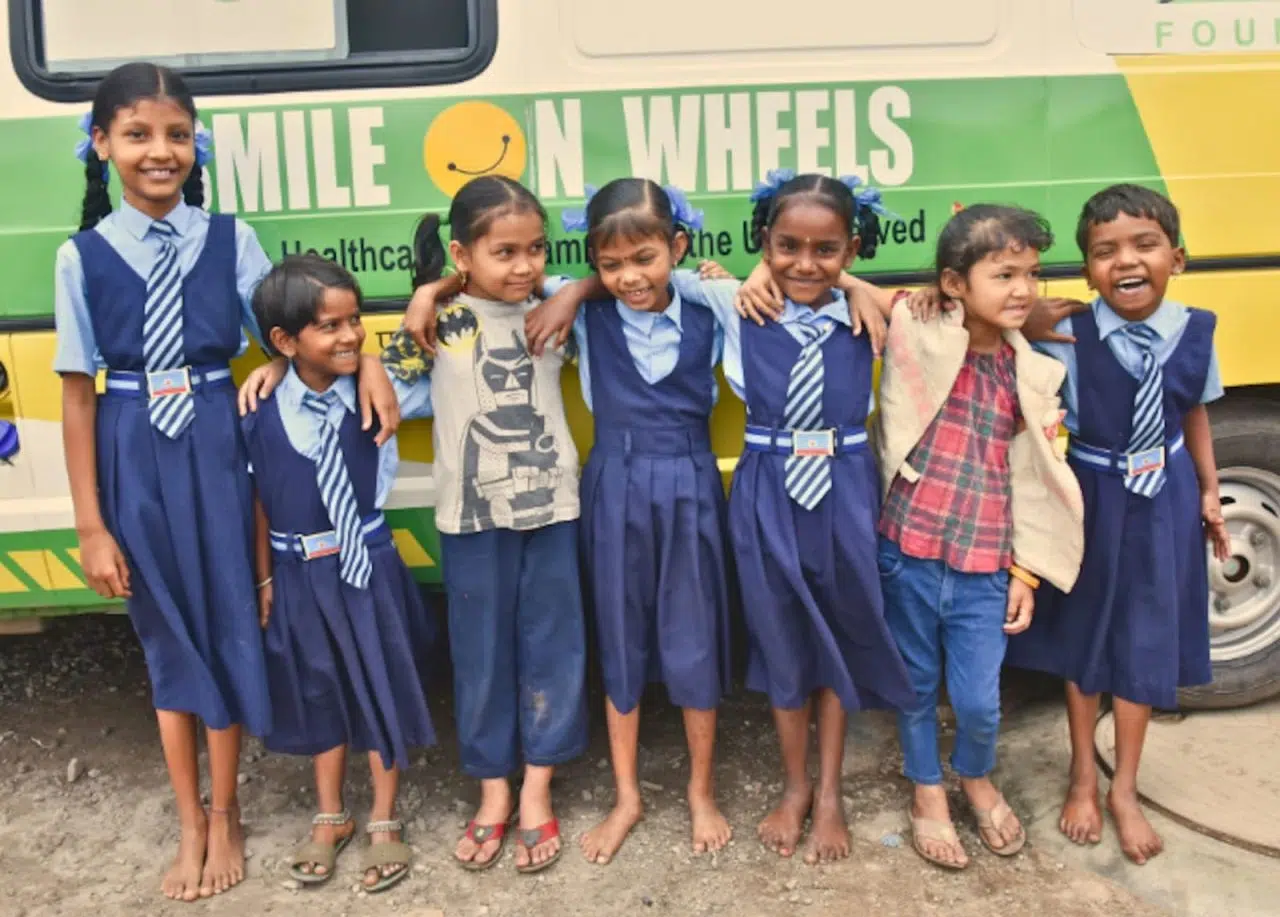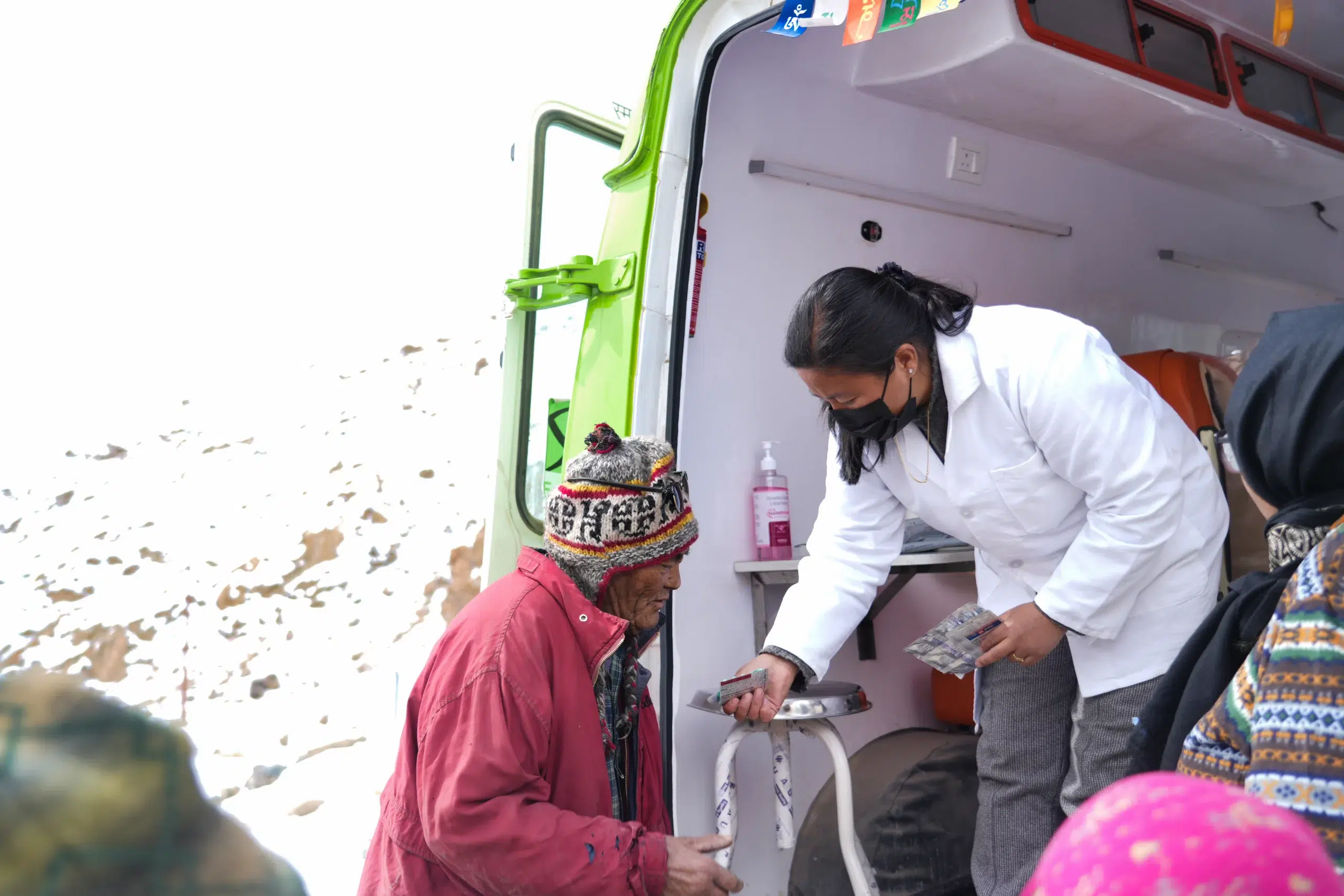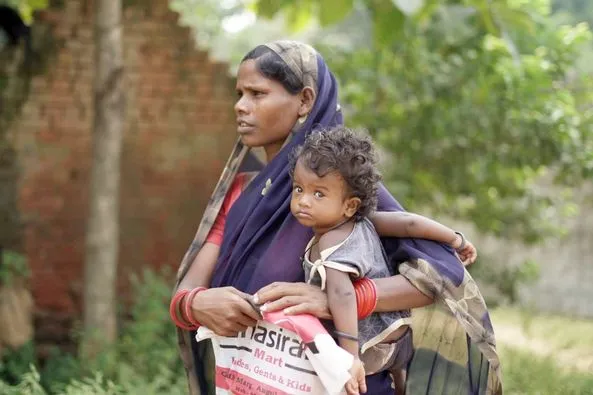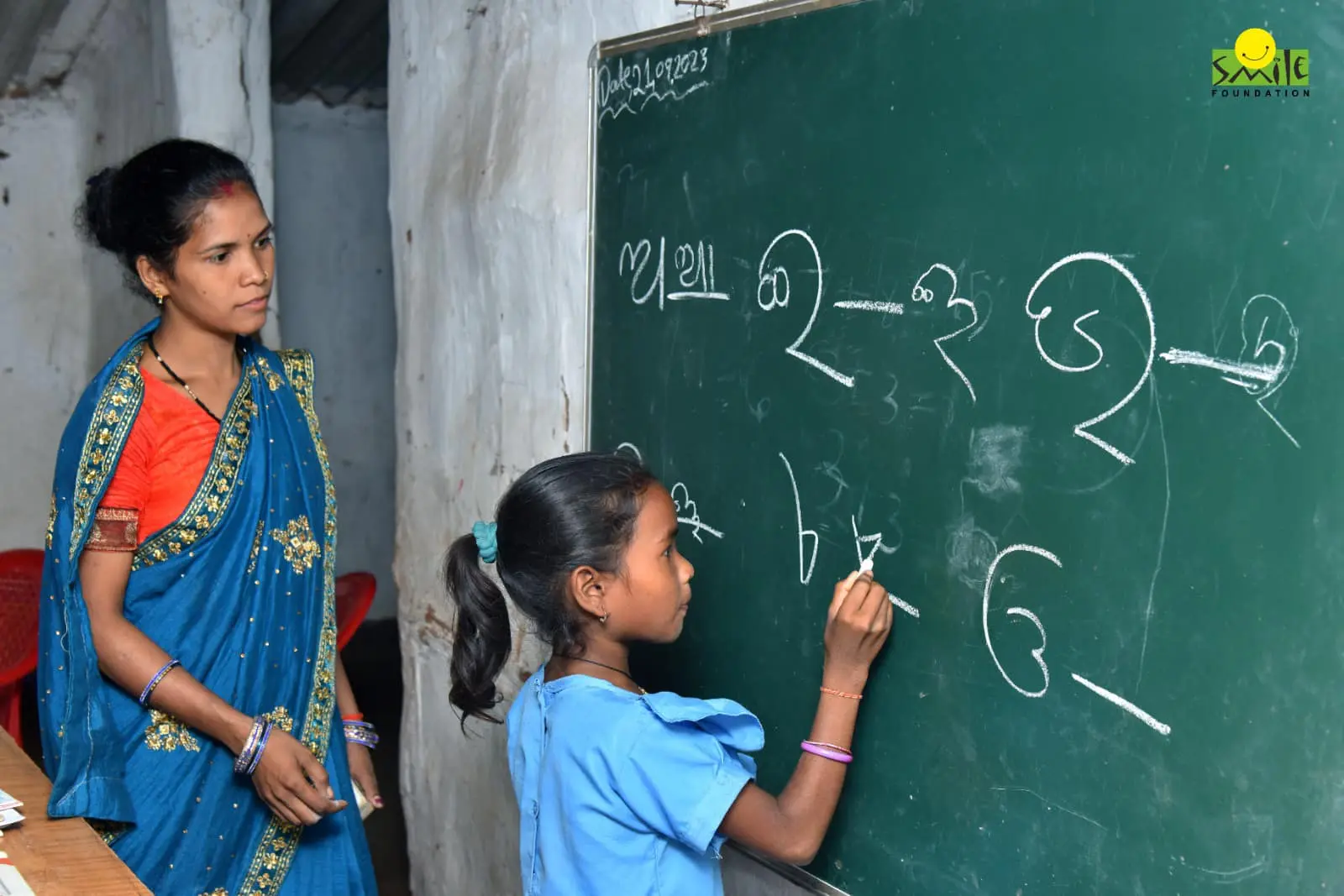Every day, Soumya Karanth and her husband accompany their children downstairs to the bus-stop where the school van comes to pick them up. “My son is 12 and daughter is eight years old, but their school bags are heavy, so we carry them till the van,” says 38-year-old Soumya, a resident of Velachery, Chennai. “But once they reach the school, they have to carry everything. My son has to climb three floors to reach his classroom and sometimes complains of backache.”
Weighed down by academics
Children carrying heavy backpacks to school are a common sight in India. Since it can have an adverse impact on health, the issue has been debated upon for years, bringing it to the attention of policymakers.
According to guidelines issued by the Ministry of Education, the weight of a school bag should not exceed 10% of the child’s body weight. So, if a child weighs 30kg, the weight of the school bag should not be more than 3kg. But most school bags weigh way more, which can have dire consequences.
The loss of life and love
In 2013, India Today reported that a Class 6 student of a school in East Delhi school “fell to his death after losing balance while leaning over a railing due to the weight of his near-13 kg bag”.
“I see children as young as four complaining about neck or shoulder pain. When I speak to them, I find that there is no history of injury or poor posture while sleeping but they have to carry heavy bags to school,” says paediatrician Benny Benjamin. “Older children often tell me that they are forced to carry heavy bags up several flights of stairs.”
This can cause pain, sprains, secondary posture problems (as the child walks bent forward to balance the weight) and can result in falls, says Dr Benjamin.
According to a report in The News Minute, in 2015, a Maharashtra government appointed committee submitted a report to the Bombay High Court, which showed that over 58% of school students below the age of 10 suffer from orthopaedic ailments due to carrying heavy school bags.
In low-income communities of rural areas, where kids often face malnutrition and lack access to healthy diets, carrying heavy school bags can make it really tough for them to attend school regularly. This is especially hard for those who get tired easily and have to walk long distances or switch transportation modes to reach school.
Packing the bag is a ritual that puts stress on the whole family unit. “We sit with the timetable every day to ensure that our children take the right books to school or else they will get punished,” says Soumya.
NEP – vocational education and bagless days
But the winds of change are blowing. In July 2020, the Union Cabinet of India approved the National Education Policy (NEP), which aims to overhaul the country’s educational system and bring about reforms at the school and college level.
NEP, which aims to introduce at least 50% students to vocational education, introduced the concept of having 10 ‘bagless days’ every academic year for children in classes 6 to 8. The aim is to use those days to promote experiential learning, engage students in hands-on activities and organise field trips.
Recently, the Ministry of Education reviewed the National Council for Educational Research and Training (NCERT) guidelines for implementing bagless days in schools, with the intention of finetuning them further.
The PSS Central Institute of Vocational Education (PSSCIVE), a unit of NCERT, has developed comprehensive guidelines to implement bagless days. These include incorporating activities such as quizzes, sports, arts and skill-based learning. According to various newspaper reports, students will be exposed to activities outside the classroom, such as visits to monuments, vegetable markets, biogas plants and solar energy parks; doodling, kite-making and sitting under banyan trees.
Schools, NGOs state governments swing into action
While many schools across India continue to burden children with heavy school bags, a few educational institutions have begun cutting down on the number of books children have to carry to school and also introduced bagless days.
An Indian Certificate of Secondary Education (ICSE) school on Old Mahabalipuram Road, Chennai, for instance, conducts bagless days thrice a year. “We plan activities for children on those days based on their skills and interests,” says a school spokesperson.
Adarsh Vidya Mandir School in Jaipur became fully digitised last year, so students do not have to carry textbooks and heavy school bags.
NGOs like ours also does its bit towards making the lives of children easier. Smile Foundation helps underserved children have access to equal opportunities for school completion. We design our learning programmes of Mission Education initiative in alignment with NEP and facilitates holistic learning and development. Children are exposed to vocational learning and introduced to organic farming techniques, recycling of used clean clothes to make socially useful products, organic production of essential oils and other daily use products and small-scale domestic repair and maintenance.
Leading by example
State governments have been taking steps to implement bagless days. Last year, the Karnataka state government took steps to reduce the burden of school bags by cutting 50% of textbooks for students of classes 1 to 10 from the academic year 2024-25 by issuing textbooks twice in an academic year.
Last July, the Puducherry government decided to introduce at least 10 bagless days every academic year in government, government-aided and private schools in the union territory.
The hope
It’s made life easier for parents and children. “My twin daughters went to Pallikoodam, a school established by educator and women’s rights activist Mary Roy,” says Smitha Thomas, who lives in Kottayam, Kerala. “It’s an alternative learning school till class 8 and, for higher classes, Saturdays were bagless days when they would learn life skills such as carpentry. My daughters really looked forward to those days.”




